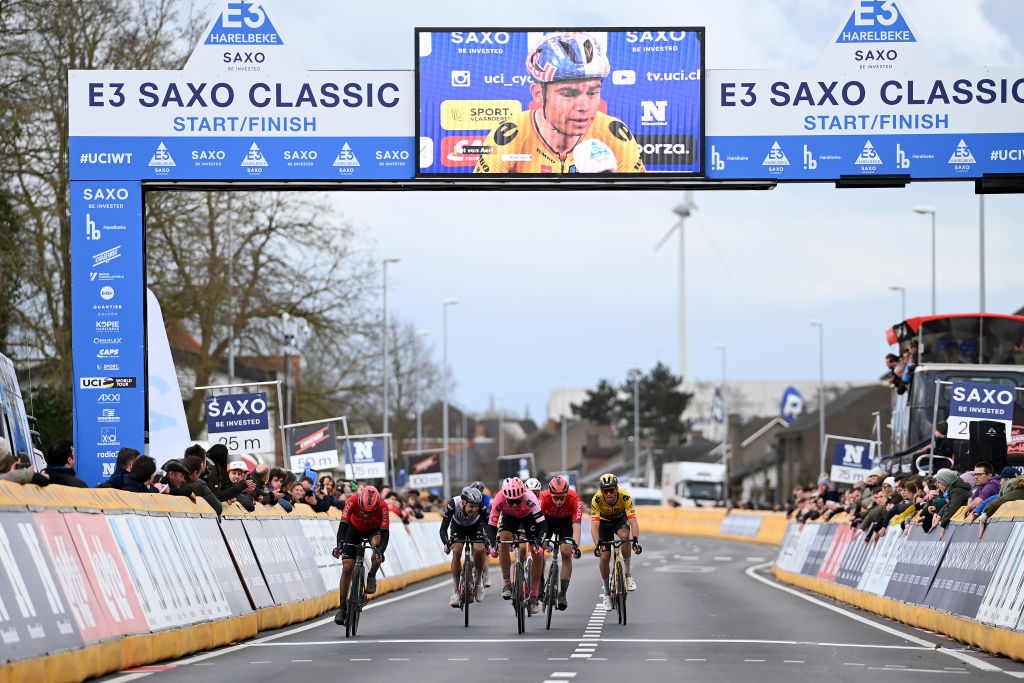After putting on a low-level women’s race for two years, the organisers of the E3 Saxo Classic announced on Friday they are cancelling this year’s race out of fears it would lead to a “mountain of debt”.
The women’s version of the event, called the ‘Leiedal Koerse’, was held in 2022 and 2023 as a UCI 1.2-ranked race and was due to upgrade to 1.1 this year. Unlike most of the other Spring Classics, the Leiedal Koerse was held at the end of April alongside a junior men’s version of the race and not near the date of the men’s WorldTour race.
“The women’s race was promoted to category 1.1 in 2024 and such an edition was also planned this year,” the race’s press officer Jacques Coussens told Sporza. “The intention was to have the women’s race run on the classic Friday of the WorldTour race E3 Saxo Classic for men from 2025 with a start and finish at the Forestiers Stadium in Harelbeke.
“Recent information that we obtained through various contacts, however, forces us to make drastic decisions. Several elements made the board decide to stop the women’s competition early.”
The E3 Saxo Classic takes place between Milan-San Remo – which also doesn’t have a women’s edition but the women’s-only Trofeo Alfredo Binda takes place the next day – and Gent-Wevelgem, which has races on the men’s and women’s WorldTour.
The Brugge-De Panne men’s and women’s WorldTour races take place mid-week just before the E3 Saxo Classic, and organisers felt there wouldn’t be enough demand for the women’s field, even though there would be one day of rest before and after their event.
“First of all, there are calendar problems for moving the women’s race. On the Thursday preceding the E3 Saxo Classic for men, there is the WorldTour race for women in De Panne and on the following Sunday in Ghent-Wevelgem. Both are sticking to their statutes and date,” Coessens said.
Rising costs have also proven to be an issue for the organisation, he added.
“Adding in a third WorldTour race proved impossible in the short and medium term. Moreover, most women’s teams have too few riders to divide the races among several teams.”
Coussens claimed, “The economic model for women’s competitions is sputtering… Organizational costs continue to rise, while the attractiveness for sponsors remains below growth expectations.
“The board of the Nieuwe Velovrienden, the organizer of the women’s race, had examined whether a final edition in 2024 in Bavikhove, together with the juniors, was feasible, but the negative economic…
Click Here to Read the Full Original Article at CyclingNews RSS Feed…

